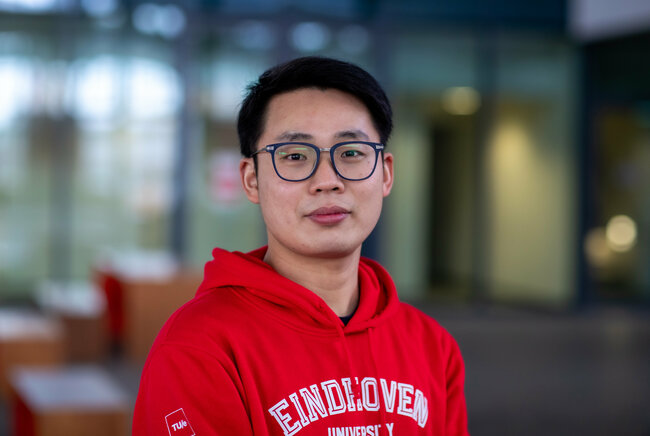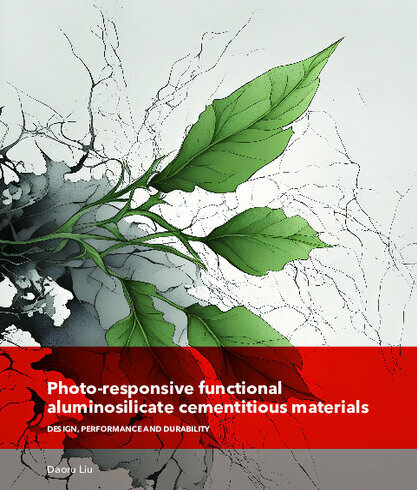Making cement and the construction industry more sustainable
Daoru Liu defended his PhD public summary at the Department of the Built Environment on June 25th.

Buildings made of more durable cement that can (energy-free) cool themselves on hot days. Yes, this is possible, and PhD reseearcher Daoru Liu has a proposal. The urgent demand for sustainability in the building industry is driving the development of low-carbon cementitious binders in building materials. In his PhD thesis, Liu focused on the functionalization of cementitious materials, specifically the development of efficient and durable photo-responsive aluminosilicate cementitious materials, with superior photocatalytic self-cleaning and radiative cooling properties.

Summarise the most relevant outcome from your research and how this could impact society.
The outcomes are expected to enhance the sustainability of the cement industry, as well as the construction industry, by empowering functionalities (photocatalytic self-cleaning and radiative cooling) to cementitious materials.
Photocatalytic self-cleaning can increase the durability and aesthetics of building materials. Radiative cooling can provide energy-free cooling for buildings during the hot days under the direct solar exposure.
What was the most significant finding from your research, and what aspects turned out to be most important to you?
The most significant finding is that the role aluminum incarnation on the photocatalytic properties of cementitious materials. The most important outcome is that the efficacy of cementitious materials as radiative coolers have been validated.
What was your motivation to work on this research project?
I have been trying to make the cement and construction industries more sustainable.
What was the greatest obstacle that you met on the PhD journey?
I would say that the greatest obstacles during my PhD research can be summarised in two categories – life and research. In life, homesickness is the biggest concern, while the failure of experiments is the biggest worry in research.
What did you learn about yourself during your PhD research journey? Did you develop additional new skills over the course of the PhD research?
I discovered that I am not as bad or good as I had imagined when it comes to accepting the mediocrity of yourself. In addition to research, I developed my communication skills, particularly with regards to speaking with people from different culture backgrounds.
What are your plans for after your PhD research?
I will continue my study on functional materials, if possible.
Title of the PhD thesis: Photo-responsive functional aluminosilicate cementitious materials Design, Performance and Durability. Supervisors: Qingliang Yu, Jos Brouwers